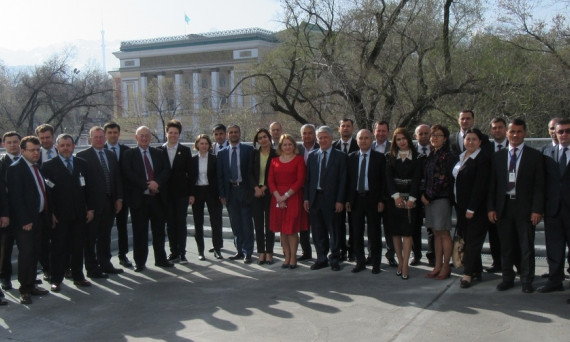On April 4-6, ENERPO Research Center fellow Irina Mironova took part in the Regional Energy Security Conference, organized by George C. Marshall European Center for Security Studies (GCMC) in cooperation with the Central Asia Institute for Strategic Studies (CAISS). The conference was held in Almaty (Kazakhstan). This conference aimed at addressing the new energy security dynamics in the world with a focus on Central Asia.
Energy issues have been lastingly on the security agenda at a cross-section of state and societal security. The energy markets of the world change at rapid pace and no country is left immune from them. The Central Asian region is also directly affected. Energy security issues are so essential for the security of both the states, the society, and the individual. The conference aimed to reconnect the exchanges on them with the broader security framework of Central Asia.
Irina Mironova presented a report titled “Decarbonization policy of energy resource importing states and its impact on energy security, example of China and Central Asia”. It is apparent that transition toward cleaner energy sources affects both the geopolitics of energy and the traditional notion of energy security.
For example, China, one of the leading consumers of hydrocarbons produced in Central Asia, made a series of steps targeted at decrease in energy intensity of its economy throughout the past decade, namely containment of increase in demand of coal and oil, promotion of efficient use of electricity, introduction of gas-fired and renewables-based electricity generation capacity. One of the most notable efforts is putting a limit on greenhouse gas emissions. The term ‘decarbonization’ therefore is applicable to the Chinese energy policy in recent years.
During the presentation and following round-table with Central Asian experts and government officials, changing energy consumption patterns in China and their effect on the key Central Asian oil and gas suppliers were discussed.
